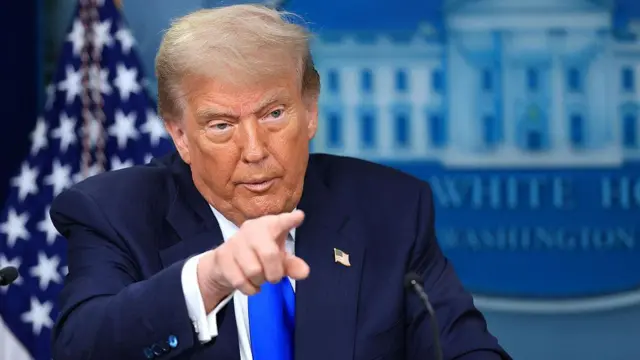
US President Donald Trump kicked off his first major diplomatic engagement with Africa since his return to the White House last January, hosting a select group of five African heads of state for a three-day mini-summit from July 9 to 11.
The meeting aims to focus on strategic cooperation between the United States and the continent, highlighting areas of mutual interest and challenge.
The invited leaders are Bassirou Diomaye Faye of Senegal, Joseph Boakai of Liberia, Mohamed Ould Ghazouani of Mauritania, Umaro Sissoco Embaló of Guinea-Bissau, and Brice Clotaire Oligui Nguema of Gabon.
According to an official White House statement, these countries were chosen for their strategic roles in sectors such as critical mineral exploitation, maritime security in the Gulf of Guinea, regional stability, and economic openness.
Yet the summit takes place amid a backdrop of rising tensions between Washington and several African trade partners. Recently imposed US tariff hikes have sparked protests, with South Africa notably condemning a 30% reciprocal customs tariff on its exports.
Simultaneously, drastic budget cuts to US development aid have cast doubts on America’s commitment to the continent, despite White House assurances that the goal is to transition “from an assistance relationship to a true economic partnership.”
The timing of the summit is also significant given the recent US-brokered peace agreement between the Democratic Republic of Congo and Rwanda, which aims to quell ongoing violence in the Kivu provinces.
This diplomatic milestone offers Washington an opportunity to bolster its influence in Central Africa as China and Russia expand their presence across the region.
Donald Trump’s approach to Africa remains under scrutiny, with analysts watching closely to see whether he can balance his “America First” nationalism with pragmatic and strategic diplomacy.
Key topics slated for discussion include strengthening supply chains for rare minerals critical to the energy transition, enhancing security cooperation against terrorism and piracy, promoting fairer trade, and encouraging US foreign direct investment.
While the summit promises high-level dialogue, the critical question remains whether these talks will translate into tangible agreements or simply serve as political signalling.
The world will be watching closely as this pivotal chapter in US-Africa relations unfolds.



